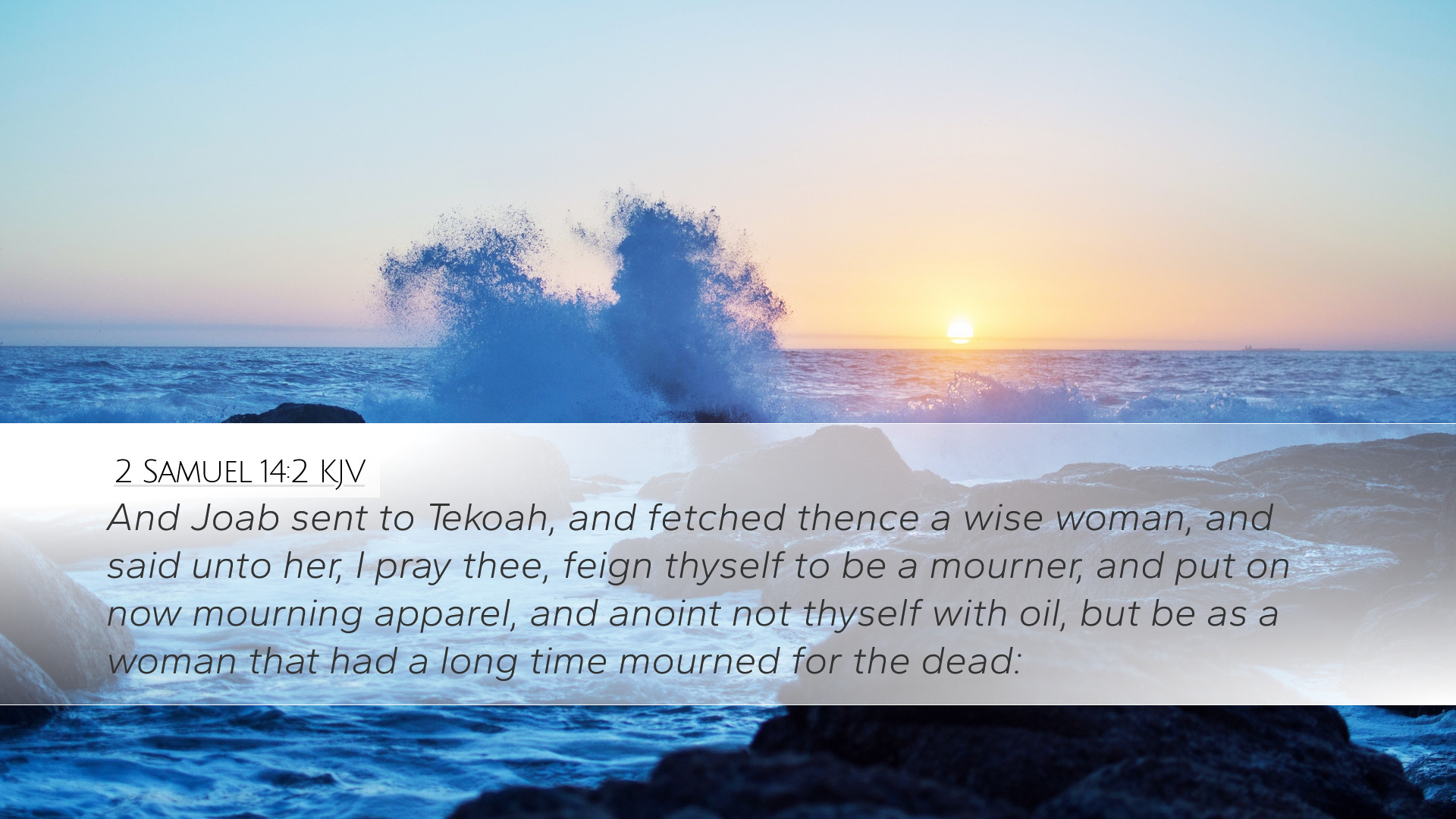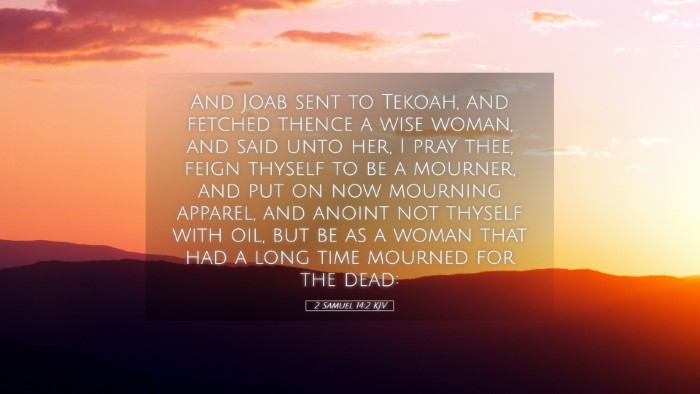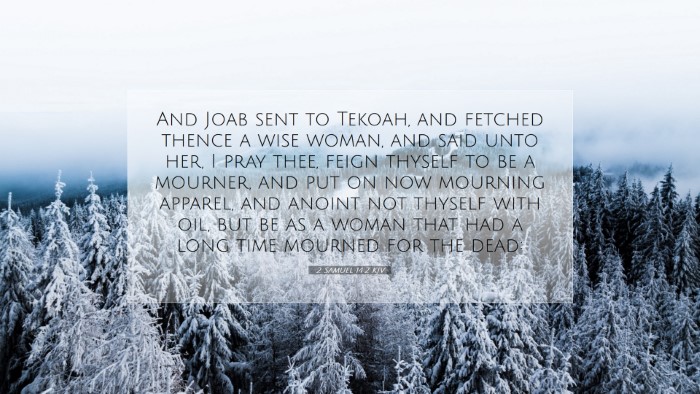Commentary on 2 Samuel 14:2
2 Samuel 14:2 states: "And Joab sent to Tekoah, and fetched thence a wise woman, and said unto her, I pray thee, feign thyself to be a mourner, and put on now mourning apparel, and anoint not thyself with oil, but be as a woman that had a long time mourned for the dead."
Contextual Background
This verse comes at a crucial moment in the narrative of David's kingdom. Following the tragic events surrounding Amnon's death at Absalom's hand, there lies a chasm in the royal family that leads to Absalom’s exile. Joab, seeking to restore family relations, resorts to strategic manipulation.
Commentary Insights
Matthew Henry's Perspective
Matthew Henry emphasizes Joab's role as a mediator. He reflects on Joab's cunning ability to manipulate the situation to his advantage. He notes the significance of the woman from Tekoah, who embodies the idea of a wise woman, suggesting that wisdom often comes from unexpected sources.
Albert Barnes' Analysis
Albert Barnes elaborates on the social customs and practices involved in mourning. He notes that Joab's instruction for the woman to feign mourning not only highlights the seriousness of the situation but also illustrates the lengths one might go to in order to achieve political ends. Barnes asserts the importance of this woman's role, indicating that her authenticity in deceit would eventually lend weight to the truth she is purported to bring forth.
Adam Clarke's Observations
Adam Clarke discusses the implications of feigned mourning in ancient Israelite culture. He expresses concern over the ethical ramifications of such deception, indicating that it presents a moral dilemma. Clarke reminds readers that the ends do not always justify the means, and he stresses the complexities inherent in Joab's plan. He also draws attention to the woman’s wisdom, asserting that often, women bear the burden of societal expectations and can wield significant influence when placed in positions of negotiation.
Thematic Considerations
- The Role of Women in Scripture: This passage underscores the significant roles women played, not just in domestic settings but also in political discourse.
- Mourning and Grief: The customs surrounding mourning in this passage open a discussion on grief's implications and how it can be enacted, real or feigned.
- The Nature of Deception: The text challenges readers to reflect on the ethical dimensions of deception and manipulation for perceived greater goods.
- Restoration of Relationships: Joab's actions indicate a desire for reconciliation, which resonates deeply within pastoral care contexts today.
Pastoral Applications
This verse invites pastors to consider how they might address themes of conflict resolution and the pursuit of peace within congregations. Joab's recognition of a need for restoration speaks to the heart of pastoral ministry.
Conclusion
In sum, 2 Samuel 14:2 provides profound insights into the complexities of human relationships and the strategies employed to navigate conflicts. The interplay between Joab, the wise woman of Tekoah, and King David presents fascinating points of study for scholars and theologians. An examination of this verse urges readers to ponder the ethical considerations of human interactions and the persistent call for reconciliation in the face of division.


